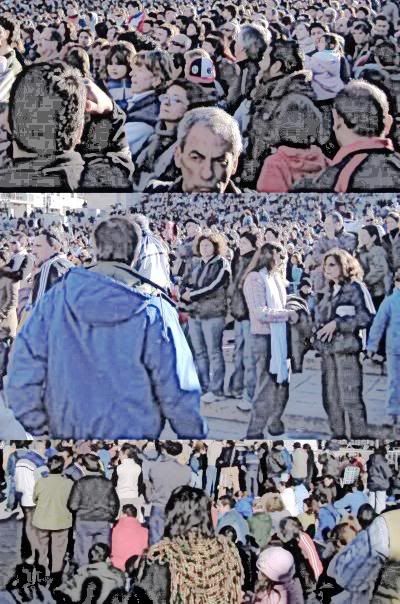
Rosario has no foundation date, and no founder. Somebody just got the lands and settled here and somehow, slowly, a village grew. But the city of Rosario does have a birthday... although it's not clear when. On 3 August 1852 the town council decided to proclaim it a city; on 5 August the governor made it official. If we accept the latter date, then we can say tomorrow Rosario City is 155 years old. But nobody seems to remember the date, or care about it.
We celebrate the day of the Virgin of the Rosary on 7 October, which I half agree with because it was around the chapel of the virgin that the town was established and got its name from, but then that was ages ago and of course every Spanish town in the Americas started like that — a main square or plaza surrounded by the seats of secular and religious power, the town hall and the church, all of it often called Villa de Nuestra Señora de Whatever.
There was some official recognition of the date, I seem to recall, in 2002, when the city turned 150, but not this year. There should be. Rosario was not simply proclaimed a city when some politician had nothing better to do and signed a declaration to that effect, or when it reached a certain population through natural growth. Rosario was a large village or town in the second quarter of the 19th century, and it was supposed to be much more than that, but in 1841 Juan Manuel de Rosas, the caudillo/dictator/governor of Buenos Aires, decided that he wanted all overseas traffic for his own place and forbade foreign trade ships to go up the Paraná River. In 1852, however, the caudillo of Entre Ríos, Justo José de Urquiza, got tired and rebelled against Rosas, and the people of Rosario supported him. Once in power, Urquiza, who had a good eye for business, opened up the traffic again, and granted Rosario the title of city. It was a good move and it was what the city needed — the port starting working like crazy, and the population went from about 3,000 to more than 50,000 in less than 40 years.
Well, many of the good things that enter Argentina still end up staying in Buenos Aires, from tourism to electronics, but today no dictator can shut us off from down there.













No comments:
Post a Comment
Note: Only a member of this blog may post a comment.